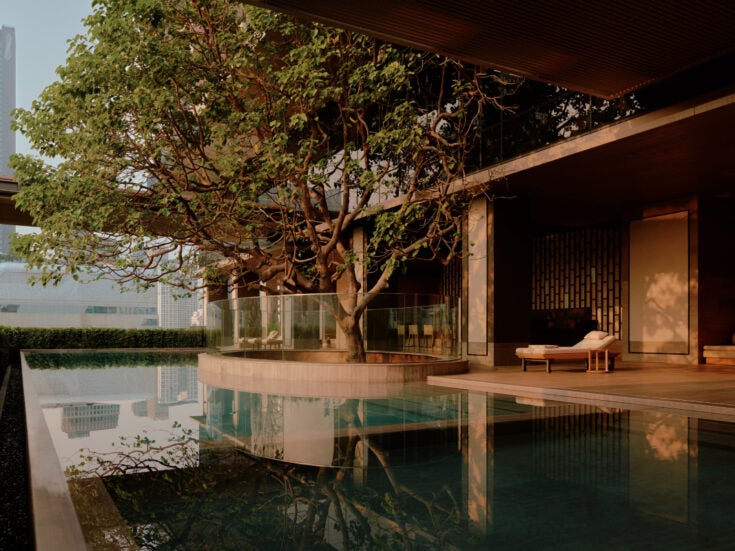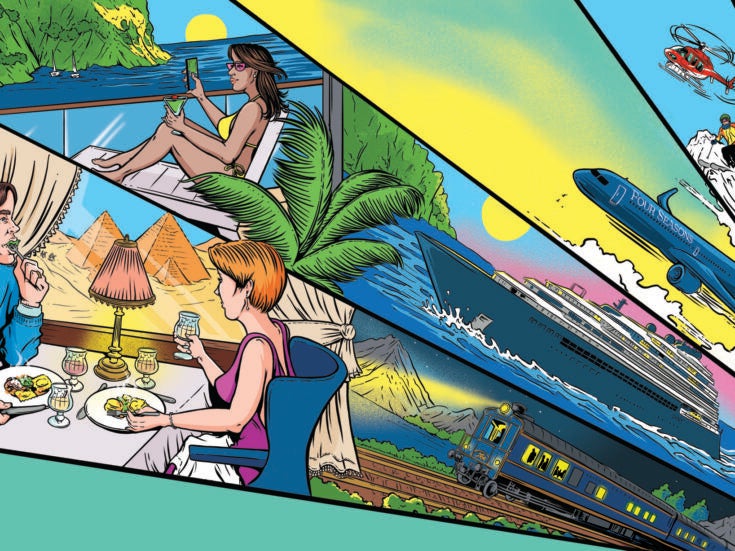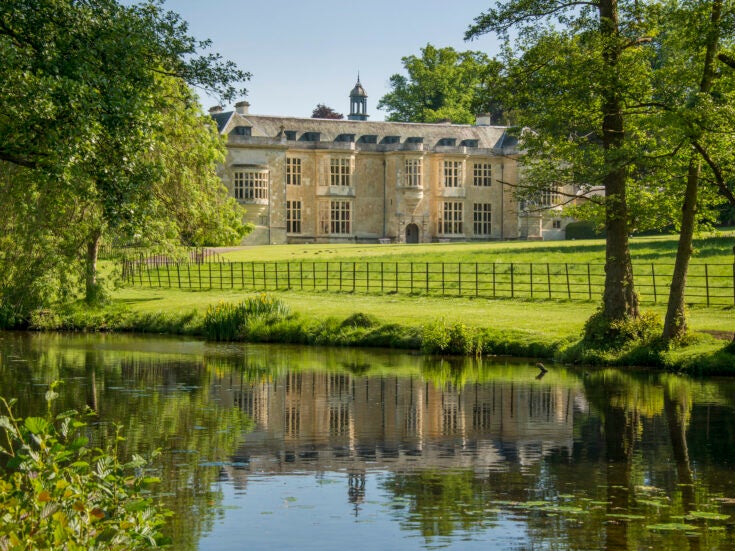Amy Guttman reports from Muscat, where a grand opera house has attracted top-class music and boosted tourism in the Gulf state that likes to be a little different
Despite the formal atmosphere in Muscat’s palatial Royal Opera House, glamorous girls in their teens and twenties swoon and sway throughout most of Saber El Rebai’s performance. At 47, the pan-Arab Tunisian pop star is twice the age of most of them, but the devoted fans sing along, pausing only to take selfies.
It’s a scene that has become familiar to Muscat since the Sultan of Oman opened the first opera house in the Gulf in 2011. The majestic hall is at least 80 per cent full, if not sold out, every night for performances which encompass opera and a world of music beyond. Pride in culture is so strong that Oman’s national carrier features opera recordings in-flight. Locals from the entire spectrum of society attend regularly, and many of Muscat’s luxury hotels are filled with well-heeled tourists who come for the opera, as well as the city’s understated vibe.
Sultan Qaboos’s appreciation for music and the arts shapes the character of Oman and its residents through pioneering projects like the opera house. He’s had his own orchestra for decades, and now Omanis such as twenty-year-old Fatin share his passion: ‘In all seasons I come, maybe four times in a month. My favourite is ballet. We are so happy; this is the first place you can come to see ballet and opera. Before, we could only hear it, but not see it. It’s perfect.’
At the Chedi, one of Muscat’s five-star hotels, where I’m a guest, Karin Reich and her husband have travelled from Switzerland to swim in the 100-metre pool and tour the opera house. ‘We read about it, and saw pictures of what looks like an Arabian palace,’ she says. ‘We wanted to see and experience it for ourselves. It’s very special.’
An Arabian palace indeed. Weekly tours take visitors through a vast piazza where dramatic lighting frames tall archways inspired by Oman’s Nakhal fort. The dress code for performances is strictly evening wear, with a loaner rack of men’s jackets and beautiful abayas encrusted with gold beading. If I hadn’t left my driving licence as collateral, I might have forgotten to give it back.
Christina Scheppelmann, the director of the Royal Opera House, takes me on a tour. ‘It’s grand, but it fits, and that’s what distinguishes it from many other countries,’ she tells me. ‘It maintains a style that suits this country. Of all the countries in the Gulf, with respect to the others, Oman really has maintained its identity and the flavour of the country.’
Placido Domingo, Andrea Bocelli, Yo-Yo Ma and a host of other big names have played here, and those are just the Western ones. A Puccini opera is scheduled, as well as local music to celebrate Omani Women’s Day — a diverse calendar by design, Scheppelmann says. ‘This is not about introducing Western culture. We do Arab music, jazz, rock, opera, symphonic… We do everything as long as it is quality.’
There’s also an emphasis on accessibility. Ticket prices start at around ’8 — not exactly the price one expects to pay for premier-league performances in a building which is more Versailles fantasia than Covent Garden stalwart.
But Oman has always stood out from its neighbours. For a start, it’s the oldest independent state in the Arab world. It has been a centre for traders of all cultures for centuries now. It’s also a frequent host to secret talks between heads of state from warring nations. Perhaps the most visible difference is the relatively understated Omani landscape, if you forgive the Opera House and the Sultan’s 500ft yacht. (Let’s not forget, we’re still in the Gulf.)
Muscat is absent of skyscrapers, a deliberate part of the sultan’s strategic development plan. His focus is on both preserving and stimulating Omani culture. More importantly, the sultan is hoping to create a sustainable economy without tying its future to declining oil and gas reserves. He is also trying to fulfil promises made after protests during Oman’s Arab Spring offshoot; protestors in smaller, scattered demonstrations demanded higher wages and benefits, better education and policy changes, rather than radical revolution.
The sultan, unlike his peers in other Arab nations, responded through active engagement, implementing key reforms and a renewed drive to stimulate long-term employment growth. There are plans for a national railway which will extend as far as Oman’s borders with the Emirates, Kuwait and Yemen, creating 70,000 jobs. Its two ports are so busy with international shipping, Oman’s historic role, that there are plans for a third.
If there is a building boom, it is cultural rather than financial: there will be a large public library and performing arts centres.

Pictured above: The Chedhi
Just opposite the waterfront, tourists and Omanis wait until dusk, when the air has cooled, to shop for colourful traditional clothing, silver daggers and other goods at the 200-year-old Muttrah Souk. Incense and fragrant Arabian perfumes waft through the dark, narrow alleys where traders stopped along the frankincense route thousands of years ago.
Merchants such as Tarek still sell frankincense. He’s had a shop here for nineteen years, during which the souk, he says, has changed, with more shops and more tourists. ‘Alhamdulillah [thanks be to god], it’s better than before.’
That’s because the government has installed air-conditioning, repaired the roof and ensured long-term maintenance. And unlike Bahrain, whose souk is losing the competition with hypermarkets, and Dubai, where the government demolished its souk to make way for yet another shopping mall, there are plans to expand Oman’s largest trading post.
A short walk from the souk, you can find Murtadha Al Lawati, director of the Ghalyas Museum of Modern Art. The 44-year-old artist is proud of his country, and the Omani tradition of embracing the old and the new: ‘The culture is still practised in Oman generation to generation, and it’s amazing how they mix the modern life with the old culture.’ Al Lawati embodies the concept, wearing Birkenstocks with his dish-dash. ‘We have balanced it,’ he says. ‘If you walk in Cairo, you will hardly see anyone walking in traditional dresses. There’s no identity.’
But not everyone embraces the new with the old. Oman’s Shura council made a recommendation last year to ban alcohol in the country, including at hotels. The proposal, which would hit Oman’s tourism sector hard, has yet to gain cabinet approval, as well as a final green light from the sultan. And that’s where much of the fine balance lies.
A European expat based in Muscat, who didn’t want to be named, talked about the push to Islamicise the country: ‘The sultan has a very tough job. I don’t know how he does it, but he has the support of the people. They love him. He’s synonymous with the country.’
When he came to power in 1970, there was just one road in Oman, and little else. The sultan created a modern infrastructure without sacrificing traditional forts, watchtowers or other testaments to Oman’s history, including its commercial fishing tradition. (Historical maritime pictures are preserved in the Ghalyas Museum, a model of a typical Omani house.) The national affection for the sultan goes back to his long-standing approach to development, says Al Lawati: ‘You don’t have the same kind of building boom. The mentality of Omanis is within the culture, that’s why you will see buildings, malls and shopping centres built within an Islamic architecture or their culture.’
Al Lawati guides me through the rooms, each decorated as a visual timeline of the nation’s progress. Next door, an ultra-modern art gallery is painted all in white. Paintings combine classic Arabic calligraphy with primary colours and abstract shapes. This juxtaposition of modern and traditional, says Al Lawati, defines the contemporary Omani culture the sultan has so carefully cultivated.
‘His Majesty promised the people he would build the country while maintaining the culture, and he did,’ he says. ‘The culture is our identity. Omanis never try to copy anything. Even if we buy a Swiss watch, we will try to sew in something silver and make it look Omani.’
If Muscat’s fantastical opera house is anything to go by, it will be Oman’s neighbours who come to copy.
Amy Guttman was a guest of Oman Air and the Chedi






